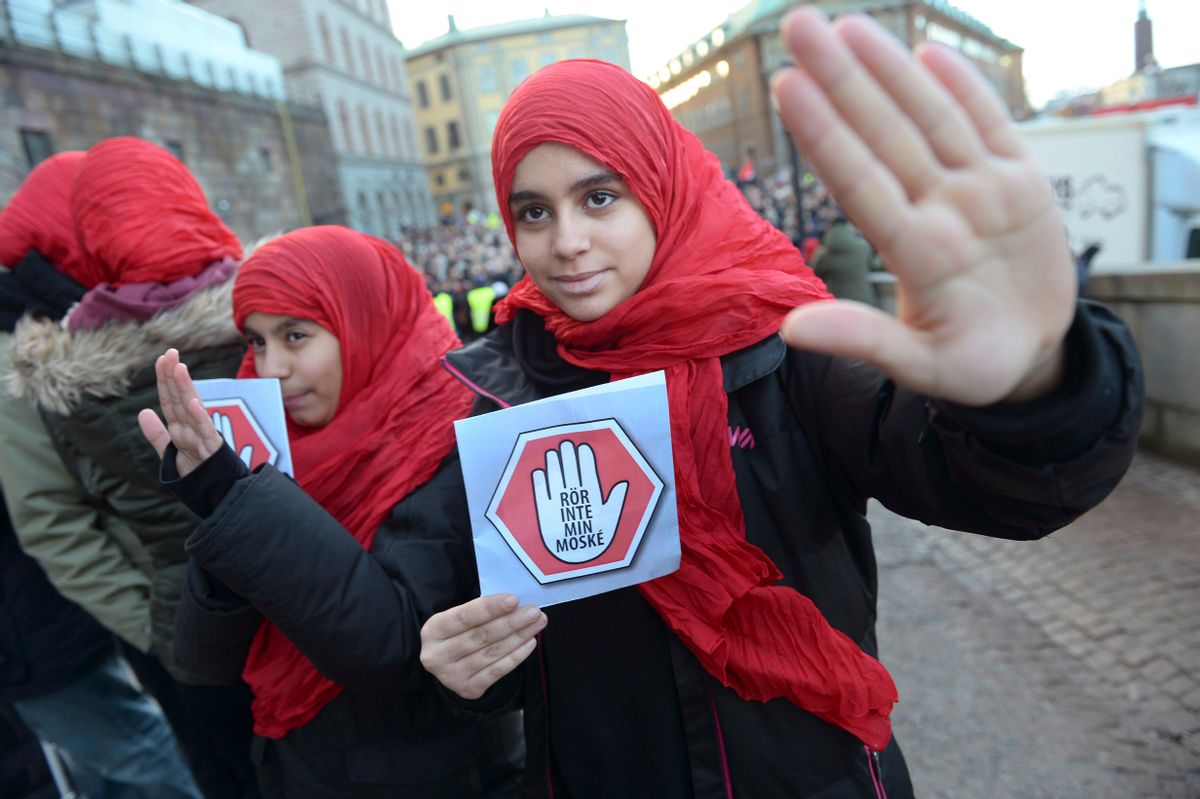Regardless of our ethnicity, we Muslims are usually full of pride to belong to our faith. Yet, the clear majority of us live a tense life that is obviously of a lower quality than that of other societies.
Irrespective of profession or social status, being recognized as a Muslim always raises question marks. We are the universe’s clear and present suspects until we manage to clear ourselves — and attain a better status than “to be watched carefully.”
This categorization of Muslims is easily noticeable in the procedures adopted by the governments of the non-Muslim nations that we live in or visit. This leaves many millions of Muslims with only one option — to become more spiritual.
However, we cannot just do the “comfortable” thing, tempting though it may be — and blame “the West.”
We should firmly assume responsibility for the appalling life we have fashioned for ourselves and are now forced to lead – even if a few external factors did contribute to dragging us into an existence where we must live under the label of “Universal Suspects.”
Islamic values
A true understanding of Islamic values should have better shaped us, but our ignorance and extreme emotionality are the primary mental barriers that prevent us from moving forward.
But here again, we face a steep, internal hurdle. While knowledgeable moderate leaders govern most of the advanced world, that is not necessarily so in our societies. Worse, an ignorant Islamic extremist can falsely claim to be knowledgeable and easily assume a leadership role, harming his own society and many innocent human beings.
For that purely internal reason, we Muslims need to redouble our efforts to prove to the world that we are ordinary inhabitants of this Earth. A small number of Muslims has succeeded in this mission. The remaining bulk will live — and die — under the label of “obvious suspect.”
Just saying that Islam is about peace, mercy and forgiveness is not enough. Nor is saying that the clear majority of Muslim people did not create terrorism, or even help in its emergence.
We are, and we will be charged with this accusation at least until we demonstrate a much stronger effort to reform. Not doing so will result not only in the marginalization of Muslims in Western nations, but in banishing us from their social circles altogether.
Western perspectives
The systematic thinking of the West that is primarily based on cause-effect relationships can’t always be applied to our world, where hidden and indirect elements often contribute to the cause factor.
Western scholars’ frequent calls for modernizing our book overlook the fact that reformist thinking is very difficult to implement at a time when manifesting a progressive mind requires enormous courage that does not currently exist in most Muslim societies.
Living a humiliating, ignorant life obviously prevents us from developing broadminded thinking patterns. Moreover, our practices in daily life are sometimes different to what the book teaches us.
Cultural and economic conditions, education, political status and many other factors unrelated to religion obviously play significant roles in shaping the thinking, actions and behaviors of Muslims.
These are the factors that make individual Muslims moderate, conservative or extremist (a categorization that has nothing to do with being either a well-educated Muslim or an ignorant one).
Between moderation and conservatism
I have observed many Muslims swing between religious moderation and conservatism and I know that their behavior and decisions are linked to countless surrounding factors and conditions, and are clearly influenced by their peers — meanwhile, our book remains our common religious foundation.
Amidst all these inner turbulations, we may correctly claim that the clear majority of Muslims are moderates, but as long as we are simply overshadowed by religiously conservative and Islamic extremist leaders, that is to no avail.
The mediocre lives that we lead taint our understanding of the Quran. For hundreds of millions of Muslims, Islam is the last fulfilling recourse of value. Western attempts to attack it are simply undermining the only rewarding option still available to them.
Working on empowering Muslims to live an enjoyable, responsible life will certainly help to substantially reduce many of the challenges we face today.
In that regard, building inclusive economies that do not just benefit a small veneer of the very rich in our societies is key. Islam was a powerful — and benign — global force as long as its economies performed well. That is the real challenge on the path to strengthening the idea of Muslim enlightenment.




Shares